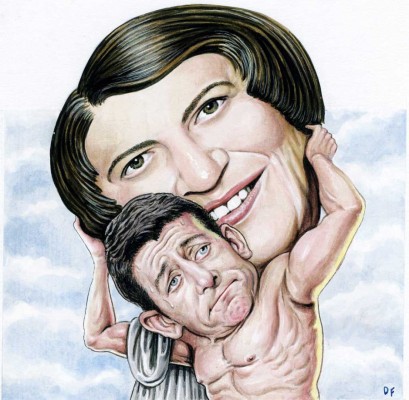Freedom Overload
Dispatches from Deena Stryker
As the world careens toward final destruction, the questions of who has what hardware and how many people will get out to protest are vital, but so is the fact that the Empire and its crimes cannot be analyzed without confronting the abusive use of the word ‘freedom’.
Your average Joe, if asked, defines freedom as ‘being able to do what I want’. Politicians capitalize on this simplistic definition by claiming that capitalism gives everyone the ‘freedom’ to develop to their fullest potential. Americans are not told what to do by government, however, they are told at every waking moment what to do or what to buy by the capitalists who thrive on their ‘free’ purchasing decisions. The fact that the government doesn’t get in your way doesn’t mean other factors don’t, starting with how much money is in your wallet. Nor does the above mean that Americans are really free to choose whatever they want in a rigged marketplace of manufactured and carefully “managed” choices (which includes politics). Further, raw individualism, supported by business propaganda, continually promotes the spurious notion that individual freedom is automatically reduced by the actions of government, or more precisely the state. But this is not only false but misleading as the role of the state cannot be evaluated without an analysis of which class it chooses to serve: the owning class or the working class. In America, it is obviously the former, which naturally leaves the 99% feeling hurt, abandoned and exploited by the state, especially as capitalism continues to widen the inequality gap. But what about the effort of a government to lift people out of poverty? Isn’t poverty a terrible and freedom-limiting condition? Shouldn’t that kind of government be supported?

Many of the most repulsive politicians in the US proclaim (proudly) their allegiance to unfettered “individual freedom”. Paul Ryan, a vile scoundrel by any standard, is one of them.
The “American way of life” is not predicated on the philosophical notion of equity, (which should not be confused with ‘equality’ a word that evokes survival level sameness) but on the much vaunted ‘equality of chances’ across a ‘level playing field’. That is why the American government is threatened by socialism, where it would be expected to make sure that each individual has access to life’s basic necessities, such as housing, food, medical care and education. Without that access, and without government serving as umpire between competing claims on wealth, ’equality of chances’, i.e., a ‘level playing field’ where you can go as far as your talents will take you, is meaningless.
Together with ‘mob rule’ and ‘freedom fighters’, freedom is the Holy Trinity of ‘democracy’, where everyone gets a say about matters of national concern through the ballot. But too much government acquiescence to peaceful demonstrations could result in ‘mob rule’. On the (third) hand, those who pick up guns against a ‘non-democratic’ government, are exercising their (theoretical) democratic right to ‘seek redress’ — or even replace that government with something that ‘shall seem most likely to effect their Safety and happiness’, are christened ‘freedom fighters’, as in each individual being permitted to do whatever he or she pleases as long as this doing doesn’t interfere in the equal right of others.
Eventually, the industrial revolution, which enabled many to toil in sweatshops instead of on the land, was followed by a technological revolution that marked the primacy of external freedom: the ability to purchase the industrial revolution’s goods. This ‘freedom to act gradually led to the denigration of internal freedom, which includes moral certainties and religion, and a world desperately clinging to these ancient traditions.
In the mouths of political hacks, the overwhelming emphasis on external rather than internal freedom is what enables the Empire to easily justify whatever war is on the table at any given moment, presented as the indispensable external freedom for ‘we the people’ to acquire ‘stuff’. The individual’s ‘freedom to Have’ must be preserved at all cost, up to and including including renouncement of Being (as in ‘dying for one’s country’ or ‘sacrificing for freedom’). Low educational standards throughout the world guarantee that most voters never consider the difference between external freedom, the freedom to act, and internal freedom, in order to evaluate justifications for war.
The Trump administration’s greatest feat hitherto has been to gain approval across (certain) socio-economic lines by lobbing a gigantic bomb into an Afghan cave, a warning to North Korea of things to come if that long-tormented nation continues to threaten it with nukes. The prospect of being able to wage devastating non-nuclear war opens up a whole new vista to humanity, however it is unlikely that the US — and hence Russia — will forego the ultimate weapon, in the latter’s case because to renounce nuclear weapons unilaterally would quickly leave the Russian people at the tender mercies of Washington’s sociopaths.
DEENA STRYKER, Associate Editor  Born in Philadelphia, Stryker spent most of her adolescent and adult years in Europe, resulting over time in several unique books, her latest being
Born in Philadelphia, Stryker spent most of her adolescent and adult years in Europe, resulting over time in several unique books, her latest being
CUBA: Diary of a Revolution, Inside the Cuban Revolution with Fidel, Raul, Che, and Celia Sanchez
America Revealed to a Honey-Colored World
A Taoist Politics: The Case For Sacredness
She began her journalistic career at the French News Agency in Rome, spent two years in Cuba finding out whether the Barbados were Communists before they made the revolution (‘Cuba 1964: When the Revolution was Young’). After spending half a decade in Eastern Europe, and a decade in the U.S., studying Global Survival and writing speeches in the Carter State Department, she wrote the only book that foresaw the fall of the Berlin Wall AND the dissolution of the Soviet Union (“Une autre Europe, un autre Monde’). Her memoir, ‘Lunch with Fellini, Dinner with Fidel’, tells it all. ‘A Taoist Politics: The Case for Sacredness’, which examines the similarities between ancient wisdom and modern science and what this implies for political activism; and ‘America Revealed to a Honey-Colored World” is a pamphlet about how the U.S. came down from the City on a Hill’.
Why contributing to the Greanville Post is urgent and makes sense.


